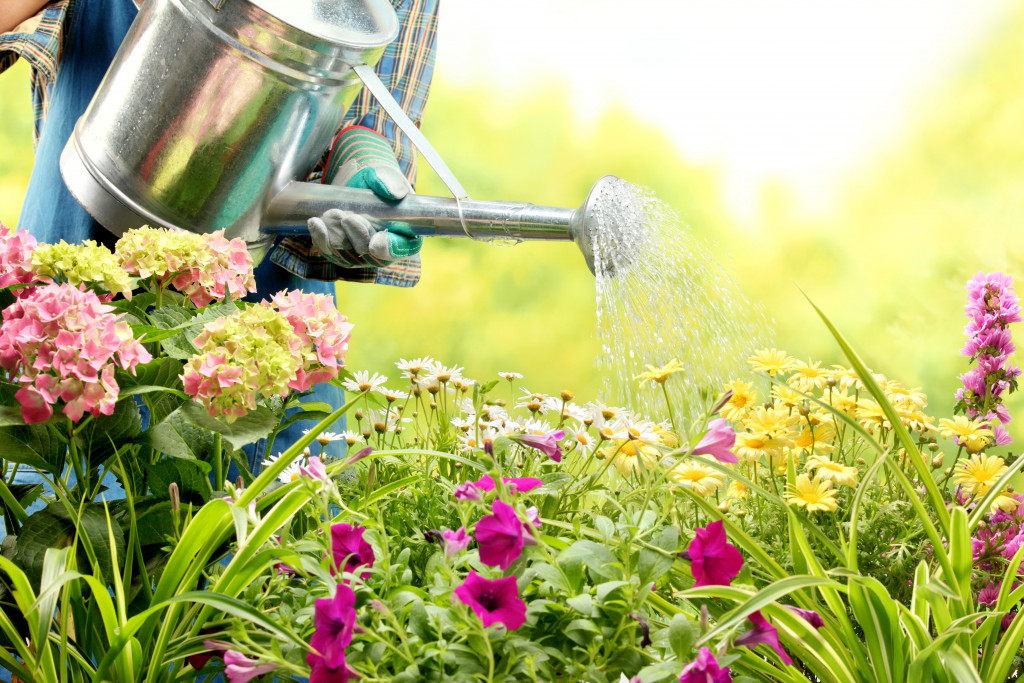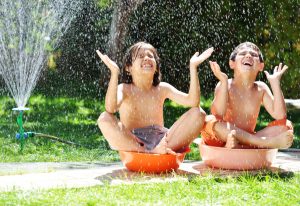Spring is coming in Australia, making it one of the best seasons to go back to tending the garden or even improving its curb appeal.
Green Oasis Landscaping, one of the premier landscaping experts, can provide plenty of help in residential landscaping, decking, paving, and reticulation. It can also assist homes in designing garden beds for plants that match the budget, preference, and surroundings.
But beyond upgrading the aesthetics of the home, a landscaped garden offers several advantages even for growing children. The University of Michigan sums it up well with the following points:
1. Gardens Can Improve Locomotor or Body Movement Skills
Play is an essential element in a child’s development. Here, they learn to be creative, exploratory, imaginative, and supportive. However, play doesn’t happen without knowing coordination, and locomotor skills are one of the foundations of that.
Children often learn the most basic locomotor ability, walking, when they turn 1. As they get older, the skills they acquire become more complex. For example, by age 2, they may already know how to run and jump.
Like all skills, though, locomotor abilities need constant practice, and gardens can be a great place for that. Parents can allow kids to bring miniature shovels and pails to help plant or take care of the soil. In the process, by holding alone, they develop their fine motor skills like grasping.
2. Well-Designed Gardens Can Encourage Exercise
Childhood obesity is a growing problem in Australia. According to the Australian Institute of Health and Welfare (AIHW), about 25 percent of kids between and 17 were overweight or obese in 2018. About 10 percent were classified as obese. Children from 5 to 14 were heavier than kids their age back in 1995.
Obesity carries the same risks regardless of age. Children are still susceptible to heart disease, diabetes, and hypertension. The biggest difference is that these conditions can appear way early than those who gained weight later in life. Their odds of premature death also go up.
Among children, the causes of obesity can vary, but one of the most common is a sedentary lifestyle. The AIHW shared that around 35 percent of kids in 2018 were hardly doing any physical activity.
How can gardens improve physical activity among children? Gardening itself is already a form of exercise. In 30 to 45 minutes, it can already burn around 300 calories, depending on the person’s weight.
Many studies also show that the nearness of a pocket park or a garden may also encourage people to engage in physical activity.

3. Gardens Can Stimulate the Senses of Children
The brain is the body’s command center for a reason: it is responsible for hundreds of simultaneous processes. To achieve this, though, it relies on the quantity and the quality of connection among synapses.
When kids are still young, their brains are still building these synapses, and stimulation can trigger their speed. Mobile devices can still help develop these electrical connections. Still, exposure to their environment remains a better option because it can work their different senses from touch to seeing, smelling, and even tasting.
Gardens are so stimulating that some hospitals or therapy homes already incorporate them into their program. For example, a smell of a plant may invoke pleasant memories for patients with dementia. Colors can be relaxing for people suffering from acute or persistent stress.
For children, these places provide them areas for exploration. They don’t get to interact with the plants—they motivate them to think, problem-solve, and learn. These encourage them to get curious and ask plenty of questions like “How do plants grow?” “What’s the role of insects in plant growth?” “Why do plants have different colors and textures?”
4. Maintaining the Garden Can Help Improve Family Bond
As the kids grow, they need to learn to be more independent. However, while they’re still young, they demand the feeling of security, especially in their relationships with older adults like their parents.
It can make them feel more confident to take risks, knowing someone is there to help them along the way. In fact, some experts believe that children learn when they are more secure.
One of the best ways to build that bond and sense of security is to engage in the same activities like gardening. Although landscaped ones might need the care of experts, kids and parents can take care of minor maintenance like pulling the weeds or watering the plants.
True, landscaped gardens can increase the value of a property—but so can they deliver more meaning, fun, and learning to kids.



















